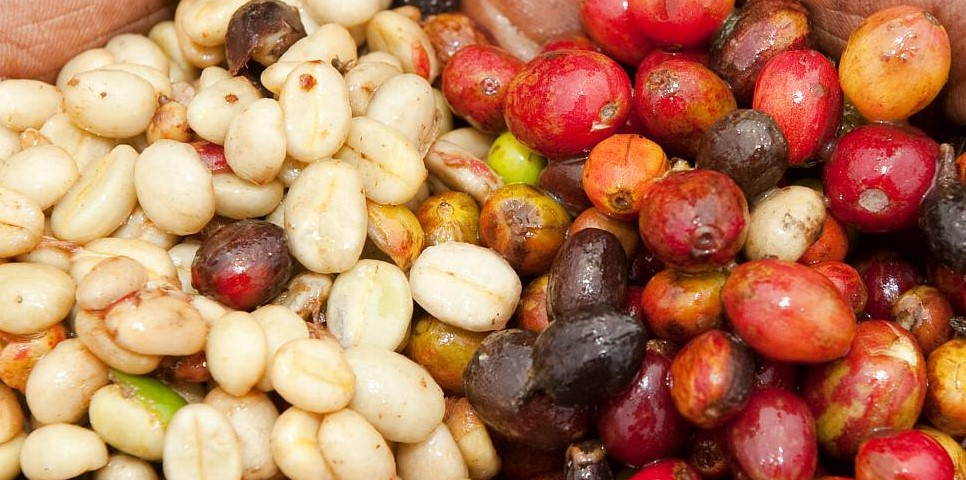Decarbonization of coffee production residues by biochar-stimulated composting (DECARB-CO)
DECARB-CO is committed to sustainable development in rural Rwanda, focusing on climate-neutral agriculture and coffee production.
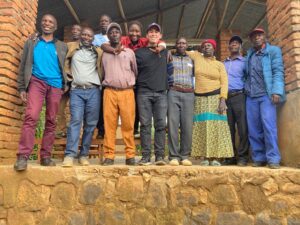
Welcome to the DECARB-CO Project
Within the sphere of sustainable development, the DECARB-CO project emerges as a paradigm of innovation and transformative potential. At its core lies an unwavering commitment to resource efficiency and meticulous waste management, guided by the overarching goal of addressing the ongoing climate challenges facing rural communities in Rwanda.
Existing Activities and Relevant Stakeholders
In Rusizi, Sight and Life Rwanda (S&L-Rwanda) actively supports local value chains and food production systems. In 2022, ETHZ researchers collaborated to assess the coffee value chain conditions, revealing a strategic gap in coffee processing residue utilization by Coffee Washing Stations (CWS). The research identified Gashonga Coffee Cooperative (GCC) as a strategic partner due to its sustainability principles and geographic positioning.
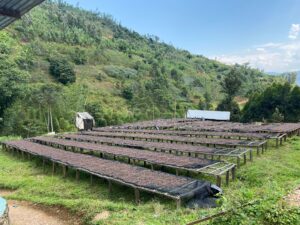
Our Approach
Main Objectives and Approach
Our primary aim is to achieve climate neutrality by implementing biochar-enhanced composting techniques. This involves implementing strategies to offset and minimize the carbon footprint, such as the use of biochar and other technologies.
Through comprehensive training and collaboration with local stakeholders, we’re working to ensure the long-term sustainability of these practices.
Composting residues of coffee plantations, coffee washing stations, and farming emerge as an ideal solution within this framework.
Objective 1: Establish an Efficient Composting Unit for Coffee Waste.
This involves developing and deploying optimized composting units that effectively utilize coffee waste and poultry manure to produce high-quality compost, promoting sustainability and improved crop yields within GCC members.
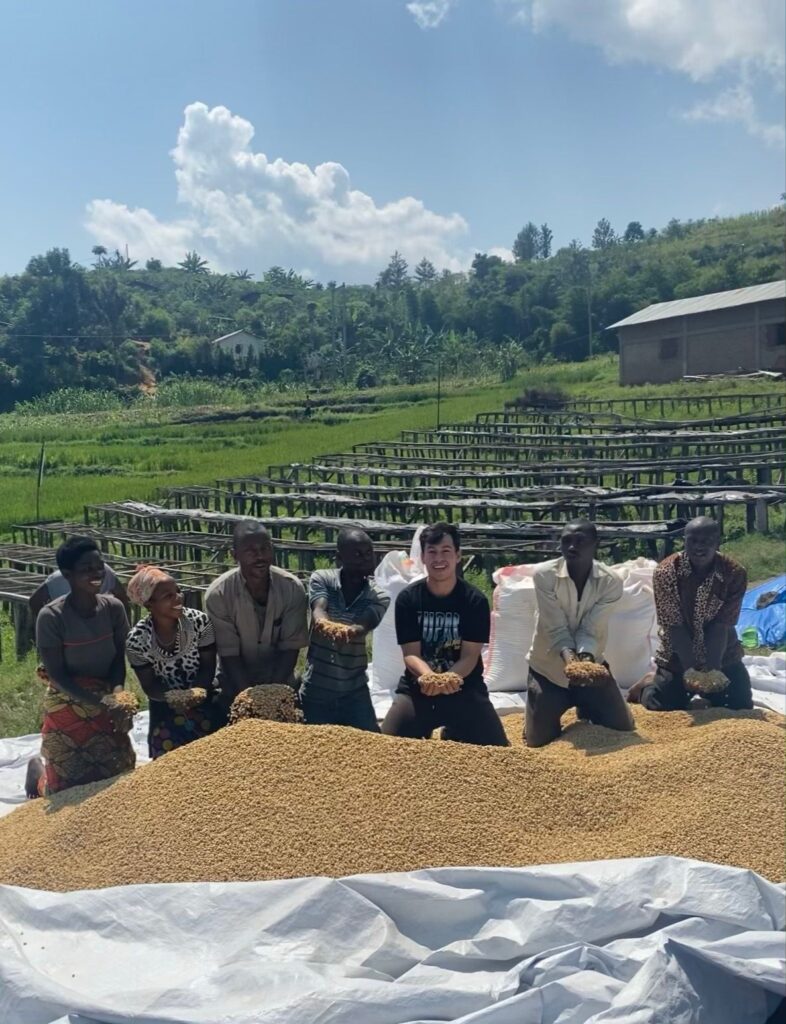
Objective 2: Conduct Participatory Action Research and Economic Analysis.
Empower DECARB-CO’s local beneficiaries to take long-term ownership of the project by conducting a participatory study focused on inclusive data gathering, economic analysis, and exploration of the carbon credit market, fostering a community-driven approach sustained by local actors.
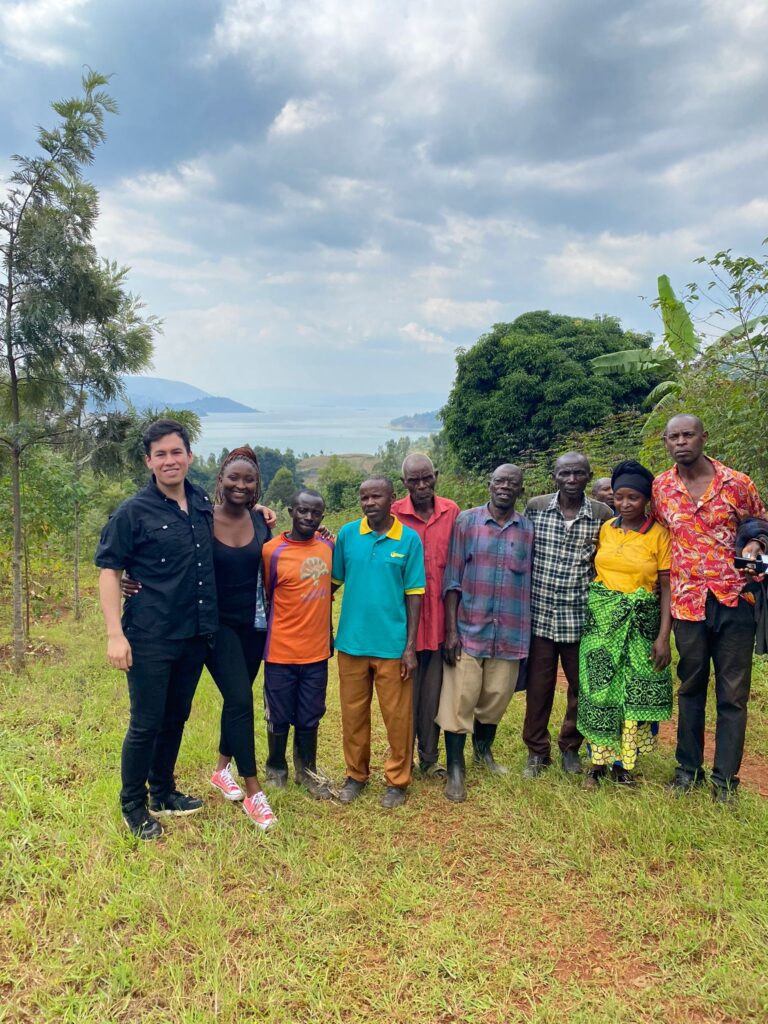
Objective 3: Build a Technical Guide and Business-model.
This means creating a detailed guide based on real evidence that validates the DECARB-CO concept, supporting future interventions and providing a clear and sustainable framework. Additionally, it involves developing a business model designed for cooperative members to establish a viable commercialization system that affirms the marketability of the produced compost.
Community Engagement
In this context, Rusizi’s coffee cooperatives and their exceptional governance structure emerge as a pivotal aspect of DECARB-CO’s strategy, offering not only logistical efficiency but also substantial impact potential. Furthermore, a study conducted by Dario Valarezo in 2022 shed light on the opportunities for addressing waste mismanagement within the coffee washing stations located in Rusizi, Rwanda. Central to our innovative approach is the collection of poultry manure to enhance the value of such residues derived from highly influential value chains in the district, aiming at establishing technical guidelines for composting that can be easily adopted and replicated by every coffee washing station (CWS) at local, regional, and national levels. Thus, recovering fertilizing elements, capturing carbon, and establishing a circular economic cycle that reintroduces these resources into coffee plantations. This, in turn, fosters improved soil fertility and healthy coffee plant growth while also reducing the high energy consumption associated with mineral nitrogen fertilizer production.
